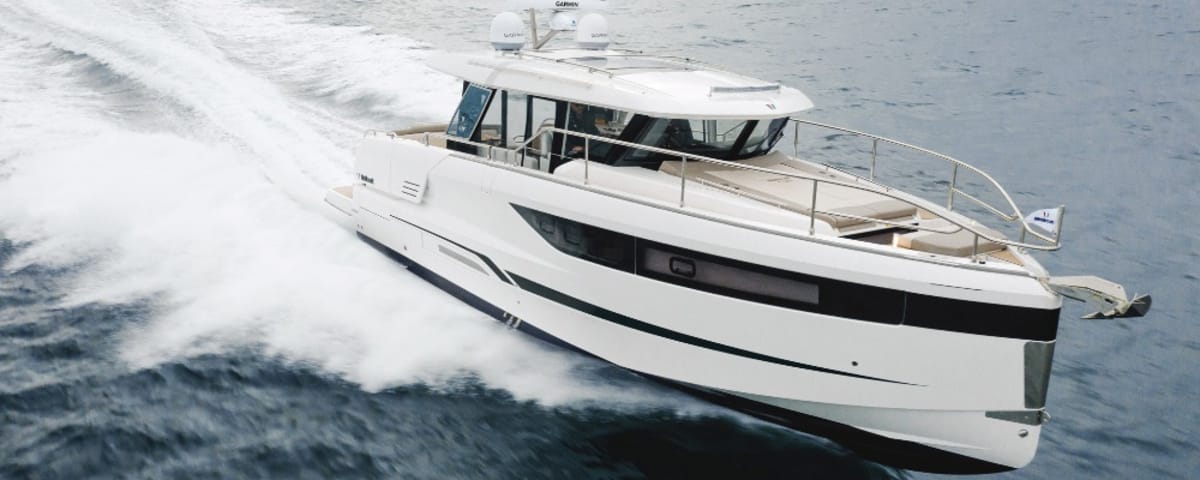The Changing Landscape of Recreational Boating
Recreational boating has experienced significant growth since the 1980s, attracting enthusiasts of all levels. In France, the Ministry of the Sea estimates there are four million regular boaters and eleven million occasional participants. This widespread adoption has naturally led to shifts in attitudes. “Previously, we dealt more with passionate individuals who meticulously cared for their vessels,” notes Kevin Hénaf, a consultant in La Rochelle and founder of the Eloyot application. “People became owners aware of the maintenance requirements of a boat. Today, many buyers behave like consumers, drawn in by the appeal of the object. This leads to significant misunderstandings about the necessary upkeep.”
Increased accessibility to ownership is facilitated by the growing second-hand market, a trend observed by the Nautical Industries Federation after the COVID period. Furthermore, according to a 2021 study on “The Deconstruction and Bioconception of Recreational Boats,” 80% of vessels in circulation were built before 2000. These boats have not all benefited from consistent maintenance throughout their lifespan. Repairs can seem too costly for an activity enjoyed only a few hours a year, especially considering additional expenses like dock fees and insurance. Boaters often wait until the last moment or until a problem arises before taking action. Moreover, occasional sailors are not always aware of the necessary revisions and part replacements. Problems are often minimized. “They are discovered when something breaks, when a claim is filed, or when the boat is sold.” The combination of an old boat, inexperience, and cost-saving efforts contributes to the overall wear and tear of the fleet.
Injecting Objectivity Through Expertise
In this context, insurers face a complex situation. The true condition of vessels is difficult to ascertain, and hidden defects, even unintentional ones, are potentially numerous. Kevin Hénaf believes that expertise should be central to the boat buying and selling process and should be systematized. “Even if the exact condition of a boat cannot be known without dismantling it, expertise allows us to go beyond a moral contract of ‘good faith.’ It’s a condition report to be placed at the heart of the transaction.” In this environment, often influenced by emotion and dreams, it is beneficial to introduce some material objectivity into transactions. “Buying a boat also means buying the troubles that come with it; it’s part of the game, and one must be aware of it.” A good maritime expert sees their mission as supporting and educating the buyer. Their role is more comprehensive than in the automotive sector with mandatory technical inspections. In boating, this informed professional is obligated to explain the imperfections of the new vessel to the buyer and even provide recommendations. “After their intervention, the new owner should know that they are buying at a certain price and should anticipate a certain amount for future repairs…” When insurers request an expertise, it is often perceived as a punishment because it means an additional cost. But it should rather be seen as a form of care,” adds Kevin Hénaf. “In my opinion, insurers do not communicate enough about this.” According to the consultant, insurance companies should assert themselves as partners and essentially announce: “You are going to buy a boat, but in reality, we are going to buy a boat together because the majority of the economic burden rests on me, the insurer. We will provide you with an expert, and we will ensure that you are sufficiently informed about the boating environment so that you can navigate safely. The insurer takes the economic risk, not the economic constraint.”
Prioritizing Rental Management or Concierge Services
The era of yachting, where only an elite could afford to sail and entrust the maintenance of their assets to repair professionals, is over. “The access of the greatest number to nautical pleasures is a very good thing, but ownership should remain the prerogative of a few privileged individuals who can finance boat maintenance.” Practice, on the other hand, can develop according to various usage systems, but always overseen by professionals. “I think it is necessary to favor the intervention of an intermediary who is responsible for reinvesting the money collected from the rental in the maintenance of the boat,” adds Kevin Hénaf. Thus, the concierge or rental management system seems to him a more virtuous system than rental between individuals to guarantee the condition of boats in general. In this case, the owner entrusts the keys of the boat to a professional who ensures the planning, maintenance, and payment of the dock space. The owner then assumes the same status as other renters, must reserve their sailing slots but is assured of always having a boat in good condition.
Enjoyed this post by Thibault Helle? Subscribe for more insights and updates straight from the source.


